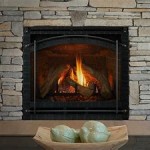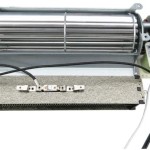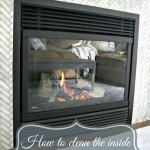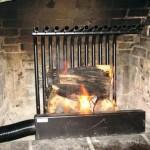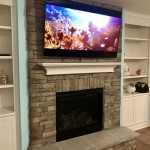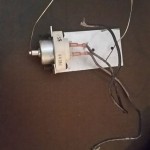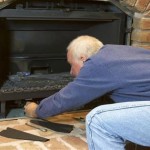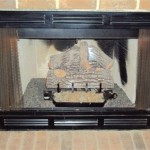Are Electric Fireplaces Good For Heat?
Electric fireplaces offer a convenient and aesthetically pleasing alternative to traditional wood-burning or gas fireplaces. They are relatively easy to install, require no venting, and provide a visual simulation of a real fire. A common question among potential buyers, however, is whether they are truly effective at providing heat. This article explores the heating capabilities of electric fireplaces, examining their performance characteristics, efficiency, and suitability for different heating needs.
The primary function of an electric fireplace is to generate heat, typically through an integrated electric resistance heater. These heaters operate by passing electric current through a high-resistance coil, which converts electrical energy into thermal energy. A fan then distributes the heated air into the room. The heating capacity of electric fireplaces is typically measured in British Thermal Units (BTUs) or watts. A standard 1500-watt electric fireplace can produce approximately 5,100 BTUs per hour. This amount of heat is generally sufficient to warm a small to medium-sized room, typically around 400 to 500 square feet, depending on factors such as insulation, ceiling height, and climate.
Electric fireplaces often include adjustable thermostat controls, allowing users to set and maintain a desired room temperature. Some models also offer multiple heat settings, enabling users to choose between low and high heat output levels. This level of control contributes to energy efficiency by allowing users to avoid overheating the room. Advanced models might feature programmable timers, facilitating automatic operation according to a pre-set schedule. This allows the fireplace to preheat a room before occupancy or to automatically shut off after a certain period, further optimizing energy consumption.
Heating Performance and Room Size
The effectiveness of an electric fireplace for heating is directly related to the size of the room and the insulation levels of the building. A fireplace rated at 5,100 BTUs will likely struggle to adequately heat a poorly insulated room of 600 square feet or more. In such cases, the fireplace might only provide supplemental heat, raising the temperature by a few degrees rather than providing a primary source of warmth. Conversely, in a well-insulated room of 400 square feet, the same fireplace might be sufficient to maintain a comfortable temperature even in colder weather.
It is important to consider the overall insulation of the room, including walls, windows, and ceilings. Drafty windows and doors can significantly reduce the effectiveness of any heating appliance, including electric fireplaces. Older homes often have lower insulation levels compared to newer constructions, which can impact the overall heating performance. Supplementing an electric fireplace with other heating sources, such as central heating or space heaters, might be necessary in poorly insulated spaces or during extremely cold conditions.
Furthermore, the placement of the electric fireplace within the room can influence its heating performance. Positioning the fireplace in a central location, free from obstructions, allows for better air circulation and more even heat distribution. Placing it near a doorway or in a drafty area can lead to heat loss and reduced efficiency.
Energy Efficiency and Operating Costs
Electric fireplaces are generally considered to be energy-efficient heating appliances, particularly for zone heating. Zone heating involves heating only the rooms that are actively being used, rather than heating the entire house. This can result in significant energy savings compared to using a central heating system to warm unoccupied spaces. Since electric fireplaces directly convert electrical energy into heat, they boast a nearly 100% efficiency rating, meaning that almost all of the electricity consumed is transformed into usable heat. This contrasts with gas fireplaces, which lose some heat through the venting process.
However, the operating cost of an electric fireplace depends on the local electricity rates and the frequency of use. At a typical electricity rate of $0.15 per kilowatt-hour (kWh), a 1500-watt electric fireplace operating at full power would cost approximately $0.23 per hour to run. Using the fireplace for several hours each day can lead to a noticeable increase in the monthly electricity bill. To minimize operating costs, it is advisable to use the fireplace only when needed, set the thermostat to a comfortable but not excessive temperature, and utilize the timer functions if available.
Compared to gas fireplaces, electric fireplaces offer a cleaner and more environmentally friendly heating option. Gas fireplaces produce greenhouse gas emissions during combustion, while electric fireplaces generate no onsite emissions. The environmental impact of electric fireplaces depends on the source of the electricity used to power them. If the electricity is generated from renewable sources, such as solar or wind power, the environmental footprint is significantly reduced. Even when electricity is partially generated from fossil fuels, the overall emissions associated with electric fireplaces can be lower than those of gas fireplaces, especially when considering the efficiency of modern power plants.
Safety and Maintenance Considerations
Electric fireplaces are generally safer to operate than traditional wood-burning or gas fireplaces. They do not produce flames, smoke, or carbon monoxide, eliminating the risks associated with these hazards. The external surfaces of electric fireplaces typically remain cool to the touch, reducing the risk of burns, particularly for children and pets. However, it is still important to exercise caution and supervise children around any heating appliance.
Electric fireplaces require minimal maintenance compared to other types of fireplaces. There is no need to clean ash, sweep chimneys, or maintain gas lines. The primary maintenance task involves periodically cleaning the dust from the heating element and fan to ensure optimal performance. Some models might have replaceable light bulbs that illuminate the simulated flames. Replacing these bulbs is a simple task that can be performed by the user.
While electric fireplaces are generally safe, it is crucial to follow the manufacturer's instructions for installation and operation. Avoid overloading electrical circuits by plugging the fireplace into a dedicated outlet. Inspect the power cord regularly for any signs of damage and replace it if necessary. Never cover the fireplace or obstruct the airflow, as this can lead to overheating and potentially pose a fire hazard. When not in use, it is advisable to unplug the fireplace, especially if it is not equipped with a timer function.
The quality of an electric fireplace can also influence its safety and performance. Purchasing a fireplace from a reputable manufacturer ensures that it meets safety standards and is constructed with durable materials. Reading online reviews and comparing different models can help buyers make an informed decision. Investing in a higher-quality fireplace can provide greater peace of mind and ensure a longer lifespan.

Are Electric Fireplaces Energy Efficient We Love Fire

Are Electric Fireplaces Energy Efficient Direct Learning Center

Do Electric Fireplaces Give Off Heat Here S What To Know Before You Buy Hunker

Which Electric Fireplace Gives The Most Heat Direct Fireplaces

The Benefits Of Electric Fireplaces Real Flame

Do Electric Fireplaces Heat We Love Fire

Electric Fireplace Heater Are They Effective Types And Specs

ᑕ❶ᑐ Gas Or Electric Fireplace Which Is Better For You

ᑕ❶ᑐ Electric Fireplace Heating Can It Heat Your House
.aspx?strip=all)
Top 11 Electric Fireplace Questions Faq Regency
Related Posts

